Crafting the leaders of tomorrow
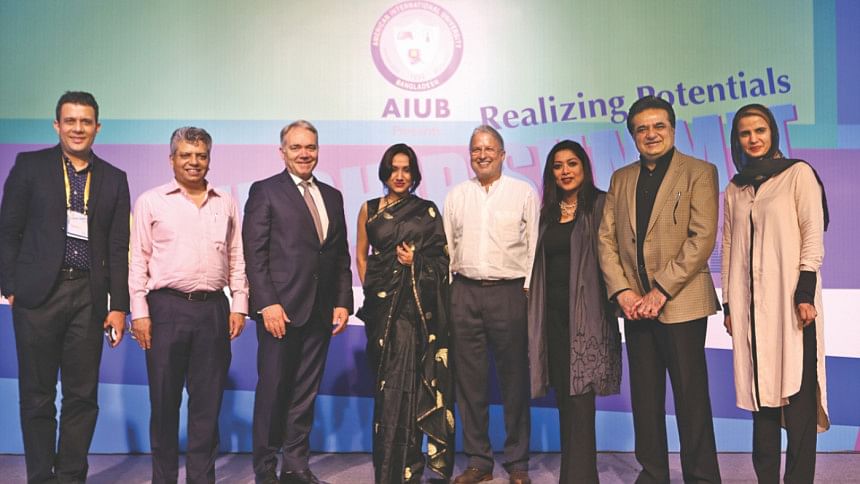
Leadership Summit 2016 organised by Bangladesh Brand Forum (BBF) took place on 23rd April at the Radisson Blu Water Garden Hotel Dhaka. Addressed to future leaders, the agenda of the event was 'realising potentials'.
The event then kicked off with the first out of five sessions.
The event also served as the launching of Mind Your Marketing, the official journal of the World Marketing Summit. BBF obtained the rights to print a Bangladeshi version and handed a copy out to all the guests in attendance. Also included in the summit was a panel discussion with the topic of realising potential in the perspective of Bangladesh, moderated by Munawar Misbah Moin, Group Director of Rahimafrooz.
The distinguished speakers talked about inspiring and guiding leadership by focussing on five broad areas.
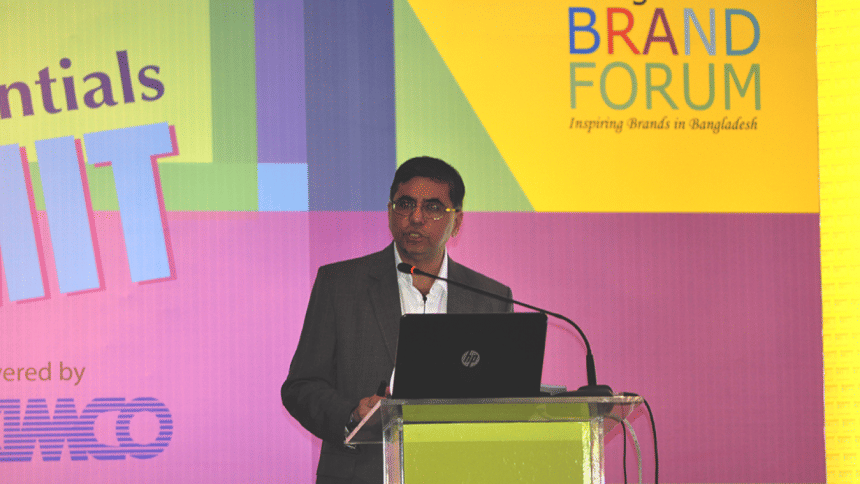
LEADERSHIP IN THE NEW AGE
Sanjiv Mehta, CEO and Managing Director of Hindustan Unilever Ltd., talked about how different emerging issues are changing the leadership landscape and stressed the importance of coping with these changes. He identified climate change, emergence of the middle class, and women empowerment, among others as drivers of change. He called the current situation VUCA (acronym for volatility, uncertainty, complexity and ambiguity). In his words, leaders should be "purpose led and value driven".
GROWING GLOBAL EXECUTIVES
Ripa Rashid, Executive Vice President, Centre for Talent Innovation, and Managing Partner, Hewlett Consulting Partners in New York, having talked about the VUCA world too, stated that surviving in it was crucial. She identified three major competencies as a must have for any global executive. They are: Projecting credibility globally; driving value locally; and winning sponsorship back at headquarters. She defined sponsors as people who will advocate for you based on your talent and hard work.
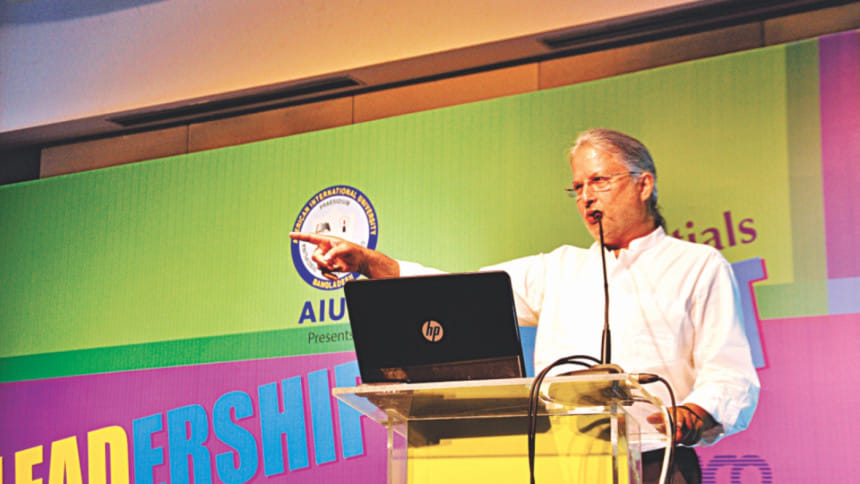
GUIDELINES FOR DRIVING INNOVATION
Professor Amitava Chattopadhyay, GlaxoSmithKline and Chaired Professor of Corporate Innovation, Insead, started out talking about the innovation challenge, which comprises of getting people on board with a shared vision and communicating this vision. From there, he went on to talk about why innovations fail. Most companies aren't equipped for the innovation challenge and hence 90% of innovations end up failing. He recognised inertia as a major hindrance, drawing the example of Tata Nano. He ended with general guidelines about creating consistent structures and procedures for employee contributions.
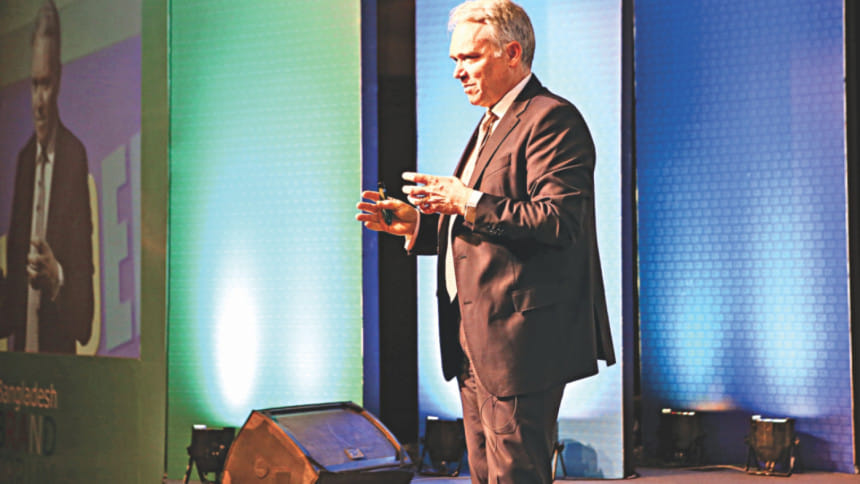
TRANSFORMING POTENTIAL INTO PERFORMANCE
Tom Cumming, Founder and Owner, Leading Ventures, B.V., Amsterdam, pointed out three universal guidelines for transforming potential into performance: the ability to understand and respond to changes in the external environment; having the skills to survive and thrive in situations of low certainty; and having networks while being constantly updated with changes.
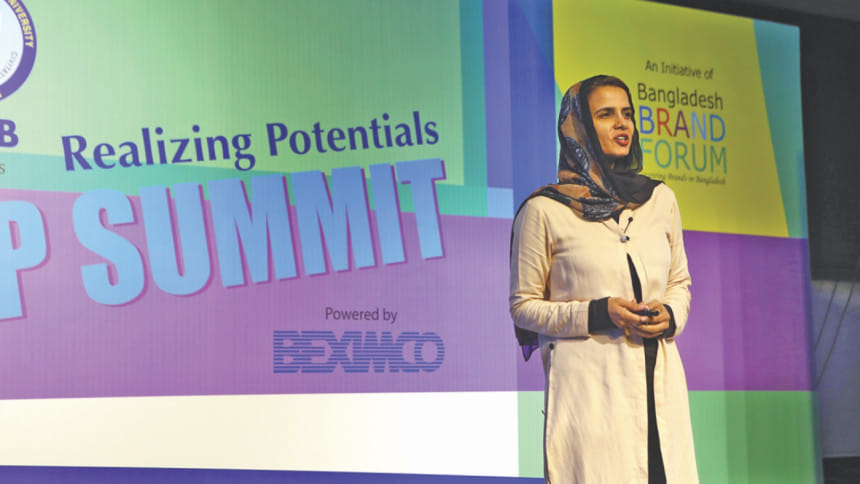
WOMEN IN LEADERSHIP
This session by Alia Khan, Chairwoman, Islamic Fashion and Design Council, was a bit different from the rest as it began with an interactive session in which Ms. Khan asked members of the audience what they understood by the word 'important'. She spoke about the obscure nature of communication and its importance. She broke down her watchword into three segments: vision, purpose and strategy, and posited that they can be identified by asking what, why and how respectively. She ended by emphasising that leaders must think beyond their lifetime in order to leave a legacy and must therefore plan accordingly.
The summit was attended by some of the biggest names of corporate Bangladesh and there was a networking session to make full use of having the corporate elites under one roof. By the end of the evening, people had truly been instilled with the belief that they could actually realise their untapped potentials.

 For all latest news, follow The Daily Star's Google News channel.
For all latest news, follow The Daily Star's Google News channel. 



Comments